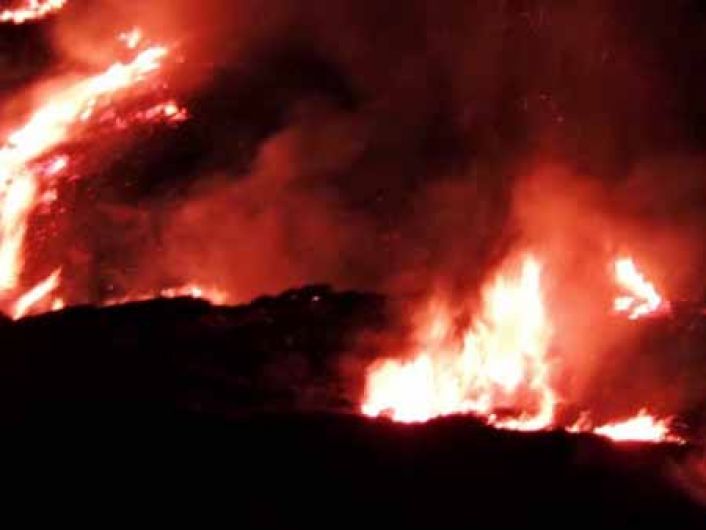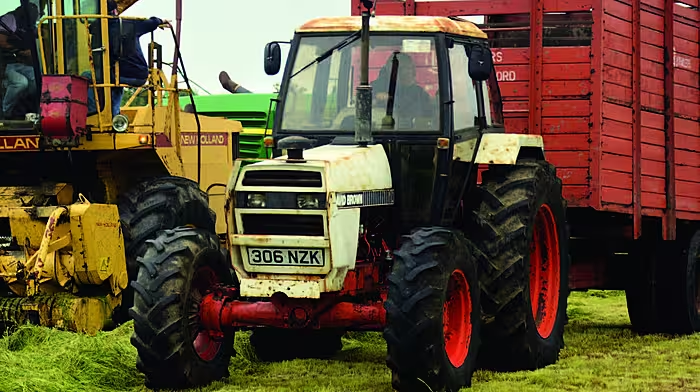Hundreds of acres of scrubland and dozens of acres of forestry were burned as a result of an illegal gorse fire last Easter Monday afternoon near Bantry.
BY JACKIE KEOGH
HUNDREDS of acres of scrubland and dozens of acres of forestry were burned as a result of an illegal gorse fire last Easter Monday afternoon near Bantry.
Bantry station officer Ian Vickery confirmed that 16 fire fighters battled the large gorse fire that went into a private plantation at Kealkil, and burned an estimated 70% of the trees.
From 4pm until 8pm, crews from Bantry and Dunmanway tried to beat back the flames as it travelled quickly up the hill at the Cousane Gap, and ripped through the young plantation.
At the time, Ian said they posted a short video of the blaze on Twitter in a bid to warn motorists about reduced visibility in the area.
‘By using social media,’ he said, ‘we are trying to show people that these are not small, inconsequential things. These fires have the potential to cause serious damage – not just to wildlife and habitats – they also put people’s homes and lives at risk.’
Ian told The Southern Star that they had no way of knowing what caused the fire, or where it started, but due to the windy conditions it spread quickly to both sides of the roadway.
Ian said there are all different types of fires, but the one thing about all gorse fires after March 1st is that they are illegal under the terms of the Wildlife Act.
The station officer said: ‘A fire can go from being a benign fire that goes out of control because of wind, and then there is also arson, of course, which the gardaí make every attempt to investigate and to prosecute.’
Ian said he doesn’t know if the Government can do anything more to counteract illegal burning, but he does believe that the fire service’s engagement with landowners is proving helpful.
‘Last year was busy, but this year is not so busy, so maybe our efforts have worked,’ said Ian, who led a number of demonstrations on responsible burning techniques at various venues from Macroom to Skibbereen and Bantry.
Ian said he could not quantify how many hours fire crews spend dealing with illegal gorse fires, but he did say that they cause the fire service to be dangerously overstretched.
‘At the height of the gorse fires,’ he said, ‘it is not uncommon to have every brigade out.
‘What you have to realise is that when we – the crews from Castletownbere, Bantry, Schull, Skibbereen, Dunmanway and Clonakilty – are up a hill fighting a fire and receive another call we have to scramble downhill to respond to that call, so there is going to be a longer than usual response time.
‘And, in situations where the next fire brigade is called to deal with a house fire, or a car accident, the crews could have to travel from Bandon or Kenmare, which also adds to the response time.’
Illegal gorse fires occur every year, but every year is different.
Ian said: ‘Nature doesn’t have a calendar. It’s when the weather is dry that we can expect a spate of gorse fires. It could be days, weeks, or months after the March 1st deadline.
They could be in March, April or May. We’ve even had them in August.’







